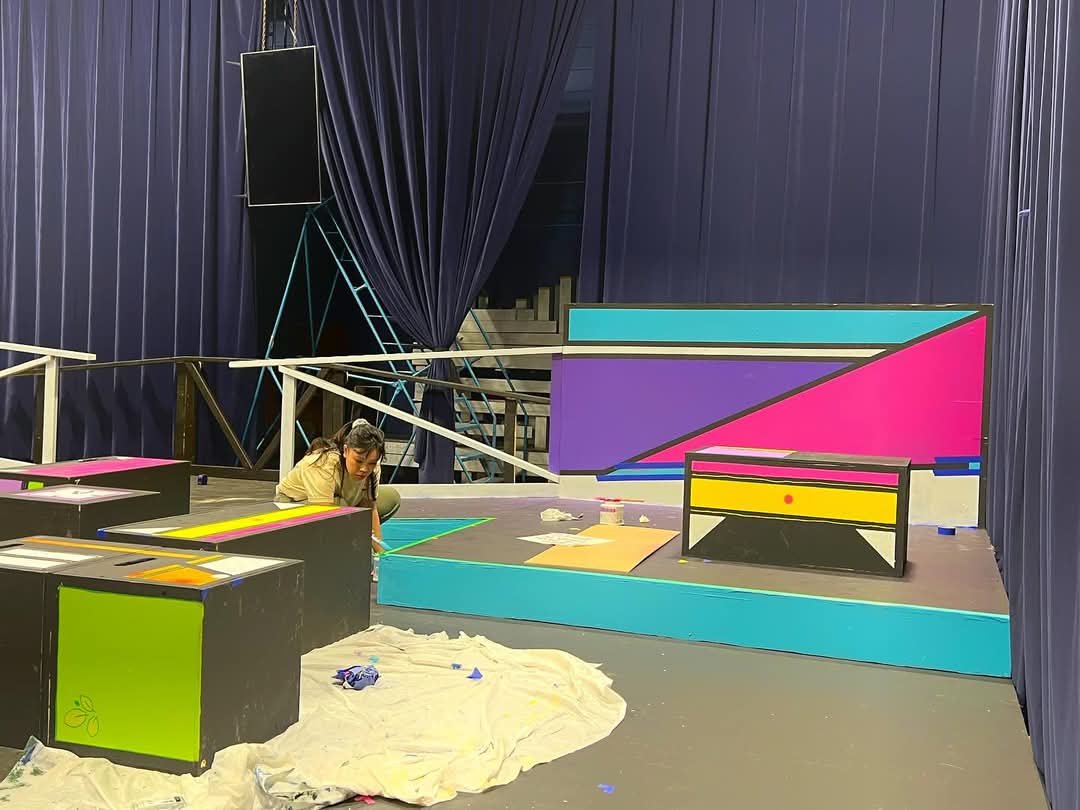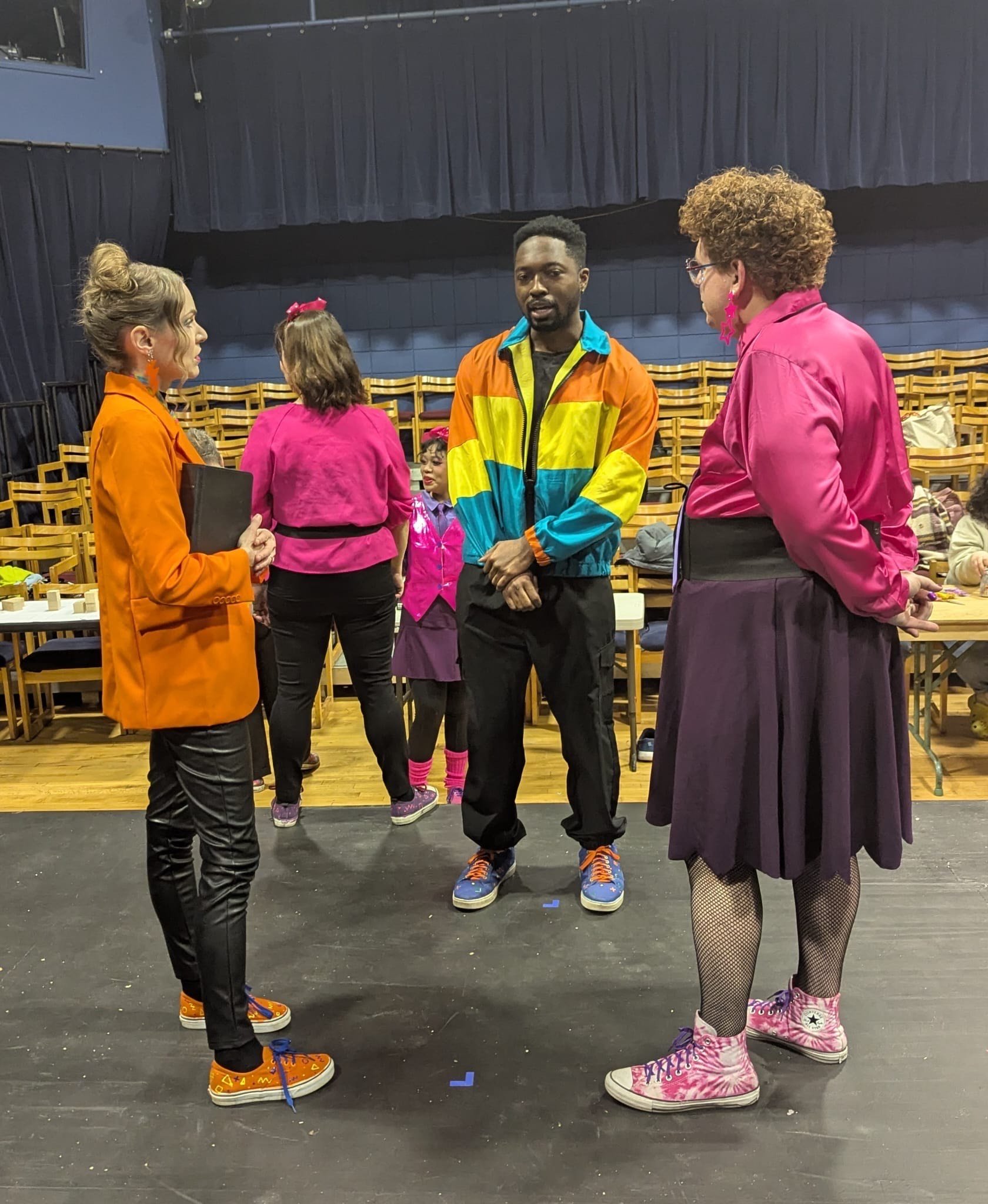MUCH ADO ABOUT REIMAGININGS: AN INTERVIEW WITH DIRECTOR JARED LENOVER
Shakespeare is, for all intents and purposes, a very safe body of work to put to the stage and there is never a lack of Shakeapeare’s work to attend and enjoy (despite some lackluster runs of Romeo and Juliet and The Tempest as of late). Hamilton has seen success with Same Boat Theatre’s interpretation of Hamlet in 2024 and it’s always a delight seeing something like The Complete Works of William Shakespeare (Abridged) or even the infamous MacHomer.
What Shakespeare needs, however, is a creative team willing to take risks in order to make any modern productions stand out and be memorable. Production teams need to balance a respect for the work while also making audiences understand (and hopefully relate to) the text and not shy away from attending a Shakespearean outing.
Luckily for Dundas Little Theatre, they have an abundance of creativity and a real urge for accessibility and inclusion in their production team for their winter production of Much Ado About Nothing. At the helm is director Jared Lenover (he/him) who shares his thoughts about adapting the play, casting decisions, making the production accessible (in several important ways) and bringing, what we hope, is a breath of fresh air into the works of The Bard.
What inspired you to take on the reimagining of Shakespeare’s comedy Much Ado About Nothing?
JL: After having directed Shakespeare in the past, I was keen to work on the first Shakespeare production Dundas Little Theatre has put on since the 90s. We wanted to place the story in a context people would recognize and identify with. We picked somewhere gossip, gender stereotypes, and power imbalances abound: The corporate office. Our company is 80s/90s-inspired but timeless. It's a modern-day arena for interpersonal battles and relationships, deceptions, humour, and much being made of nothing.
This production features a great deal of consideration toward actors who use mobility devices. How did the production team envision the staging (including the stage design) to incorporate this effectively? How do these efforts speak to the need to break down these barriers in community theatre?
JL: We wanted to be inclusive in our casting of the show, so we committed to finding ways to make the production more accessible. One of the things we did was incorporate ramps into the set so everyone can enter, exit, and use the different parts of the stage. Many community theatre spaces have adapted to be more welcoming to audience members who use mobility devices or have other needs. I think it's important we also make the stage itself (and other aspects of the production) as accessible as possible for actors and crew so that everyone has a chance to be involved.
Set design and construction of Dundas Little Theatre’s Much Ado About Nothing
Photo credit: Chris Farias
How will this production of Much Ado challenge and engage audiences?
JL: While casting we decided to choose actors based on how well they suited a part, regardless of gender. So, audiences will see actors playing parts traditionally reserved for other genders, and hopefully that will challenge preconceived notions around social norms and roles. In general, it's a fun and colourful show and the cast does a wonderful job bringing it to life.
A vibrant rehearsal of Much Ado…
Photograph by: Kevin Archibald
What have been some hurdles and highlights during the rehearsal process?
JL: It truly takes a village to put on a production like this. There are 20 actors plus about 30 people working behind the scenes. Working with a team this big is a challenge but it's also been a highlight to work with so many talented and dedicated people. Thanks to everyone on the cast, crew, and production team for their patience and for pulling together to make the show a success.
Why does Shakespeare continue to resonate for modern audiences and what do you hope audiences will take away from this production?
JL: I think Shakespeare continues to resonate with audiences because people can see themselves (and others) in the characters and situations. The language may be a bit challenging, and sometimes society has moved past particular biases and references, but the overall story and themes still have relevance and make people think about their own lives and the world around them. I hope this production entertains, makes people laugh, and makes us think about our own biases and the ways we treat each other.
Thank you Jared for all your insights into making this adaptation of a Shakespearan classic! A retro inspired, vibrant and most certainly intriguing reimagining is coming soon to Dundas Little Theatre’s stage starting January 24!
Look for Steel City Reviews full review coming January 27!



